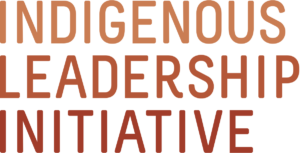New Pride and Healing a Year After Thaidene Nëné Indigenous Protected Area Created
By Steven Nitah
August 21, 2020
One year ago, the Lutsel K’e Dene First Nation signed an agreement with the Governments of Canada and Northwest Territories to protect 26,376 square kilometres known as the Thaidene Nëné Indigenous Protected Area. We have been busy ever since. The Nation has hired Indigenous Guardians to monitor the area, and we’ve invested over $500,000 in regional businesses to buy boats and research equipment. We’ve been winterizing a newly purchased fishing lodge and welcoming northerners who prefer local vacations during the pandemic.
Something powerful has grown out of all this activity. People in Lutsel K’e have a renewed sense of pride and ownership. It feels good to honour our responsibility to care for Thaidene Nëné, and we take comfort in knowing it will always remain protected. We are grateful our Nation’s work to create Thaidene Nëné was recognized this year by the United Nations Development Programme’s prestigious Equator Prize—the first in Canada to receive it.
We know Thaidene Nëné is part of a larger movement of Indigenous-led conservation—a movement that is reshaping relationships between Indigenous and Crown governments and between people and the land.
Ni Hat’Ni Dene Guardians Photo: Pat Kane
We see it in the document we signed last year. Lutsel K’e Dene First Nation, the Government of Canada, and the Government of the NWT entered into negotiations as equal partners, each identifying our roles and responsibilities. Instead of the old approach in which Canada engineered a program and delivered it to Indigenous Peoples, we co-created an agreement and we will co-manage it together.
Canada benefits from this model. It pledged to protect 25% of land by 2025 as part of the international effort to sustain biodiversity. Thaidene Nëné—one of the biggest protected areas in the country—helps Canada accelerate toward that goal. It confirms Canada can be ambitious. It can become a global leader on conservation by building respectful partnerships with Indigenous Nations across the country. And that’s why the government invested in over 25 Indigenous Protected and Conserved Area proposals this past year, and why Indigenous-led projects accounted for the majority of Nature Fund initiatives.
Indigenous Peoples also benefit greatly from this approach. As an equal partner in the creation of protected areas, Indigenous Nations build our responsibilities to the land into the agreements. We become accountable to our members, elders, youth and future generations.
This serves as a reversal of the assimilation policy that interrupted Indigenous People’s duty to their families, communities, and territories. When you take away those responsibilities, you take away self-worth. You cause decades of heartache and trauma.
Thaidene Nëné is where the healing lies. The people of Lutsel K’e are proud to recognize our responsibilities again, and we are doing it through a legal agreement with Crown governments. This is how reconciliation unfolds—on the land and in partnership.
A view of Tochatwi Bay, east of Taltheilei Narrows. Photo: Pat Kane
Now Lutsel K’e members are drafting a management plan for the protected area, but unlike the old national park plans, this one will include Dene worldviews and laws. Lutsel K’e Dene people know we belong to the land, the land does not belong to us. That’s why the plan will focus on managing people’s relationship to the land, rather than managing the territory itself. The same is true in Indigenous Protected and Conserved Areas across the country, where Indigenous knowledge is shaped by the land itself.
Indigenous Protected and Conserved Areas offer a blueprint for how the world can manage ourselves in relationship to Mother Earth.
The people of Lutsel K’e are proud to share this understanding and be a part of the movement calling for Indigenous leadership on the land. A year after we welcomed federal and territorial leaders, scientists and conservation leaders to the signing ceremony for Thaidene Nëné, our message remains the same: visit our territory, enjoy its beauty, learn from our relationship with it, and help honour the responsibility to care for it.
Steven Nitah was lead negotiator for Łutsël K’e Dene First Nation in the creation of Thaidene Nëné and is a senior leader of the Indigenous Leadership Initiative.



